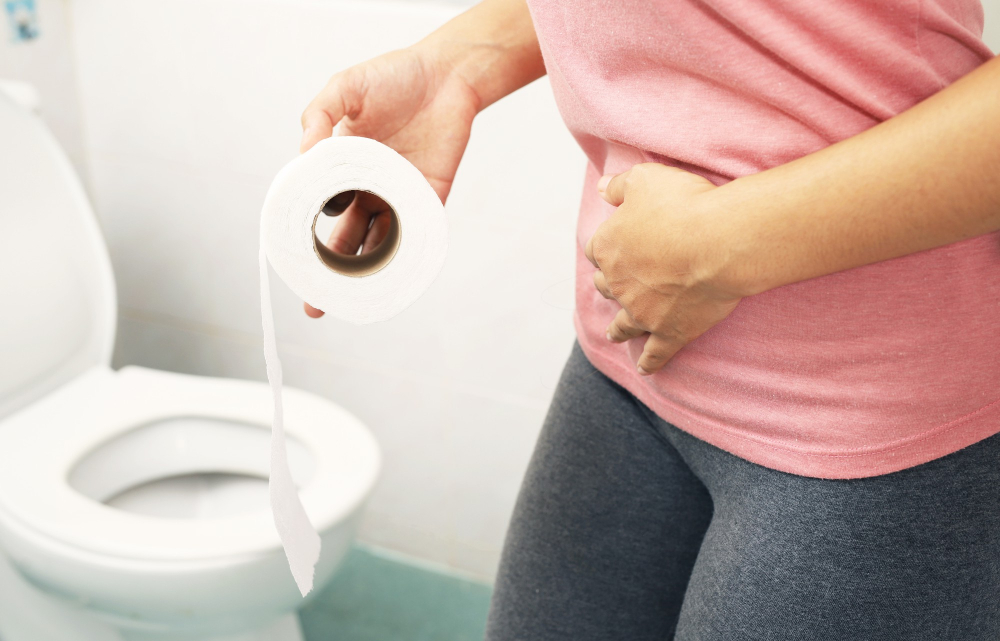An 82-year-old man found he couldn’t control his stools. The bed linens would become filthy even before he got to the toilet. He felt embarrassed to raise the issue with his family. This problem is known as fecal incontinence and is a prevalent condition in the elderly.
About Fecal Incontinence
Fecal incontinence is defined as the inability to control bowel motions, which results in feces leaking from the rectum. This is very common among the elderly. There are effective therapies available for this issue.
Fecal incontinence can be humiliating. The elderly may want to avoid discussing the issue and may also avoid social meetings. This might lead to rage and melancholy. Contact with the stools can irritate the skin around the anus, causing itching, irritation, and ulcer formation.
Causes
The bowels are controlled by a muscle known as the anal sphincter muscle, which prevents stools from leaking. Given its stretching and holding power, the rectum can keep the stools for a period of time, which is known as rectal storage capacity. Fecal inconsistency arises when the anal sphincter muscle is injured. Damage to the anal sphincter muscle can be caused by childbirth with forceps, episiotomy (a cut made to enlarge the vagina for easier delivery), constipation, rectal surgery for hemorrhoids (piles), perirectal abscess, inflammatory bowel disease, reduction in muscle elasticity, radiation injury, and damage to nerves that control the anal sphincter muscle due to multiple sclerosis (nervous system disease), spinal cord tumors, and diabetes.
Diagnosis
To check for infection or hemorrhoids, the area between the anus and the genitals is physically examined. The doctor may recommend blood tests, stool cultures, and various medical tests, including
- A digital rectal exam is done to check for abnormalities in rectum.
- Anal manometry is done to determine the tightness of sphincter muscle.
- Anorectal ultrasonography, which is done to evaluate structure of sphincter muscle.
- Proctography is done to evaluate the stool-holding capacity of rectum.
- Proctosigmoidoscopy is done to check for swelling, infection, tumors, and scar tissue.
- Anal electromyography is done to check for nerve damage in the anus.
Treatment
For fecal incontinence, a range of therapies are available, including medicines, dietary changes, special exercises, and surgery.
To stop the diarrhea, the doctors prescribe loperamide (Imodium®), an antidiarrheal medication. If the patient is constipated, the doctor may prescribe milk of magnesia, a mild laxative. To prevent stool hardening, stool-softening medicines may be administered.
To relieve chronic constipation, the doctor recommends a high-fiber diet as well as plenty of fluids. Caffeine and alcohol should be avoided as they contribute to fecal incontinence. In situations of diarrhea, the doctor may also recommend high-fiber diets to thicken up the stools. Whole wheat grain, bran, rice, cheese, and yogurt are among the foods that help add volume to the stools.
If the anal sphincter muscle is not controlled, the doctor will begin bowel training. The doctor will instruct the patient to use the restroom at a specified time each day. This will allow bowel movements to occur exclusively at that time. In a biofeedback program, a probe is inserted into the anus to assess the strength of the anal sphincter muscle. The patient is made to do anal sphincter muscle contractions and is taught how to strengthen the muscles in the area.
In some cases, surgical techniques are recommended, such as
- Sphincteroplasty to help strengthen anal sphincter muscle
- Surgical correction of protrusion of rectum through anus (rectal prolapsed)
- Surgical correction of hemorrhoids
- Repair of the sphincter
- Replacement with an artificial anal sphincter
- Injection of biomaterials to increase the size of anal sphincter muscle
- Colostomy is done to divert stools through an opening in the abdomen
Give support
The elderly who suffer from fecal incontinence are often depressed about their circumstances. The other family members must recognize this and strive to assist them. The more one panics, the worse things appear to be. When going out, it is recommended that the elderly use a disposable undergarment or pad and have a change of clothing with them. The elderly must understand that fecal incontinence is a normal aspect of aging and that effective therapies are available.



